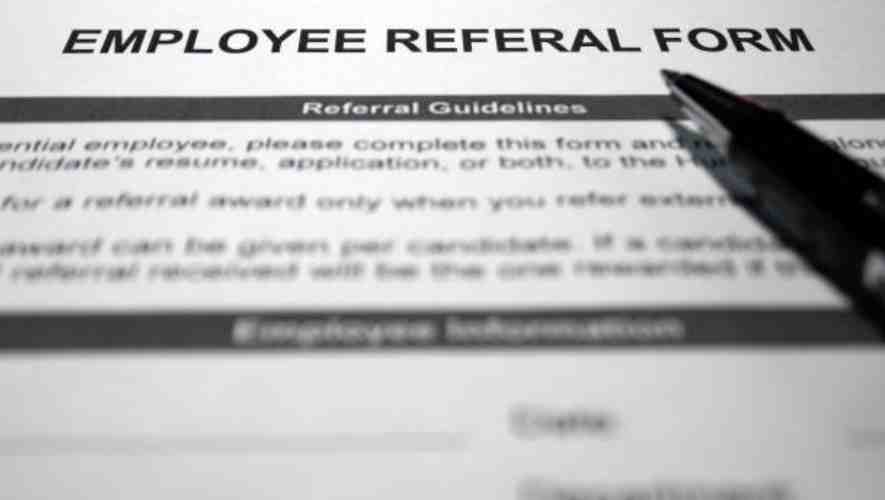Moving to a new city or country can be a thrilling adventure, filled with the promise of new beginnings and opportunities. However, this excitement often comes with the daunting task of finding a new job. You’re not alone if you’re pondering when to start applying for jobs before your move. It’s a common concern, driven by the need to secure financial stability in your new location.
When to Start Applying for Jobs Before Moving? The ideal time to start applying for jobs before moving is 1 to 2 months ahead. This time frame allows for the completion of the hiring process and potentially negotiating a start date that aligns with your move. It also provides a cushion for any unforeseen delays in the moving process.
As you delve into this blog, you’ll discover not just the best practices for timing your job applications before a move but also tips on how to enhance your chances of landing a job remotely. We’ll cover everything from leveraging your network to mastering remote interviews. This guide is designed to arm you with the knowledge to make your transition as smooth as possible, ensuring you step into your new city with a job waiting for you.
Ideal Timing for Applications Applying for Jobs Before Moving

Embarking on a job hunt before relocating is not just advantageous—it’s essential. Initiating your job search before the move allows you to gauge the job market, aligning your skills and preferences with available opportunities.
This proactive approach not only positions you as a determined candidate but also provides a safety net, ensuring you’re not left scrambling for employment upon arrival.
Furthermore, it offers the chance to schedule interviews in advance, potentially aligning them with pre-planned visits to your new locale.
Start Early
The mantra “the earlier, the better” holds true when it comes to job applications and relocation. Starting your job search well in advance—ideally several months before your planned move—gives you a significant edge.
It affords you the time to conduct thorough research on potential employers, customise your applications, and follow up diligently.
This period also allows you to network, possibly attending industry events or arranging informational interviews, which can be invaluable in establishing connections and gaining insights into your new market.
Relocation Timeframe
Understanding and clearly communicating your relocation timeframe in your job applications is crucial. It informs potential employers of your availability and demonstrates your commitment to the move.
Be specific about your relocation plans, including the expected move date, to align with employers’ timelines.
This clarity can also facilitate discussions about remote work possibilities or the need for temporary accommodations, such as video interviews, before you’re able to attend in person.
Application Deadlines
Paying close attention to application deadlines is vital during your job search, especially when planning a relocation. Missing a deadline can mean missing out on a great opportunity.
Keep a detailed calendar of application deadlines and prioritise your applications based on these dates and your level of interest in each position.
Remember, some industries or companies may have specific recruiting cycles, so understanding these can help you time your applications perfectly to maximise your chances of success.
Interviewing and Communication Strategies Applying for Jobs Before Moving

In today’s dynamic job market, mastering the art of interviewing and communication is more crucial than ever. Whether you’re a recent graduate or an experienced professional, these skills can significantly impact your career trajectory.
Effective communication strategies enable you to articulate your value proposition clearly, making you stand out in a pool of candidates.
Moreover, adeptness in interviewing techniques ensures that you can confidently navigate through the nuances of various interview formats, be it in-person, remote, or hybrid, thereby increasing your chances of landing your dream job.
Start Applying for Jobs Before Moving
Initiating your job search before relocating can offer numerous advantages, including reducing job search time after moving and gaining insights into the new location’s job market.
By applying early, you demonstrate proactiveness and adaptability to potential employers, traits highly valued in today’s workforce. Additionally, engaging with the job market ahead of your move allows you to network with professionals in your desired location, providing a smoother transition and potentially opening doors to opportunities that may not be publicly advertised.
Remote Interview Preparation
As remote interviews become increasingly common, preparing for them has never been more important. This preparation involves not only brushing up on your interview responses but also ensuring your technology and environment are conducive to a professional interview setting.
Checking your internet connection, ensuring good lighting, and minimising background noise can significantly improve the interview experience for both you and the interviewer.
Furthermore, practising your on-camera presence can help convey confidence and professionalism, making a lasting positive impression.
Communicating Your Move
Effectively communicating your relocation plans to potential employers is crucial. It’s important to be transparent about your moving timeline and how it aligns with the job start date.
This clarity helps manage expectations and demonstrates your organisational skills and commitment to the role.Additionally, articulating the reasons behind your move can further showcase your motivation and determination, qualities that are attractive to employers.
Whether your move is for personal growth, family reasons, or career advancement, sharing your rationale can foster a deeper connection with your potential employer.
Negotiating Relocation Support
Negotiating relocation support is an important aspect of the job transition process. When approaching these negotiations, it’s essential to conduct thorough research on typical relocation packages within your industry and to clearly articulate your needs.
Discussing relocation support early in the negotiation process can help ensure that both you and the employer have a clear understanding of the expectations and resources involved.
Furthermore, being flexible and open to different forms of support, such as temporary housing assistance or travel reimbursements, can facilitate a mutually beneficial agreement, easing your transition to the new location.
Post-Acceptance Considerations Start Applying for Jobs Before Moving

Once you’ve accepted a new job offer, it’s crucial to start your job application process before you relocate. This proactive approach ensures a smoother transition, allowing you to understand the job market and secure employment opportunities in your new location.
By doing so, you mitigate the risk of unemployment periods and can also gauge the demand for your skill set in the area.
This strategy not only solidifies your financial stability upon moving but also provides peace of mind, knowing you have a clear career path ahead in your new city.
Timing Your Move
Timing your move is essential for a seamless transition to your new job and living situation. Consider the start date of your new position and the housing market dynamics in your new location.
Planning your move during off-peak times can lead to cost savings and less stress. Additionally, allowing yourself a buffer period between moving and starting your new job can help you settle in, explore your new surroundings, and adjust to the local culture and lifestyle.
This careful timing ensures you’re not just physically present for your new role, but also mentally prepared and focused.
Relocation Logistics
Managing the logistics of your relocation is a multifaceted process that requires careful planning and execution. From sorting out housing and understanding the cost of living differences to organising the physical move of your belongings, each step should be meticulously planned.
Utilise relocation resources, such as moving companies with experience in long-distance moves, and consider the timing and logistics of your move to coincide with your job start date.
Efficient planning can significantly reduce the stress associated with moving, making the transition smoother and more manageable.
Transition Support
Seeking and utilising transition support can greatly ease the stress of relocating for a new job. Many employers offer relocation assistance, which can include financial support, resources for finding housing, and even cultural orientation for international moves.
Beyond employer assistance, look into community resources such as expat groups, professional networks, and local community centres that can offer advice and friendship.
This support network can be invaluable for navigating the practicalities of your move and adjusting to your new environment, ensuring a successful transition both professionally and personally
Conclusion
Starting your job search 1 to 2 months before moving is a strategic move that balances the hiring timeline with your relocation plans.
This approach ensures that you’re not left in limbo upon arrival in your new city and can begin your new chapter with financial peace of mind.
When planning your move, it’s important to remain flexible and open to the possibilities. Sometimes, the perfect opportunity might require a bit more patience or a slight adjustment in your timeline. Remember, every move and job search is a unique journey. Embrace the process with optimism, and don’t hesitate to reach out for help or use your network. Ultimately, the goal is not just to find a new job but to build a fulfilling life in your new home. Your proactive approach and diligent preparation will pave the way for a successful transition, allowing you to enjoy the new experiences and opportunities that await.


